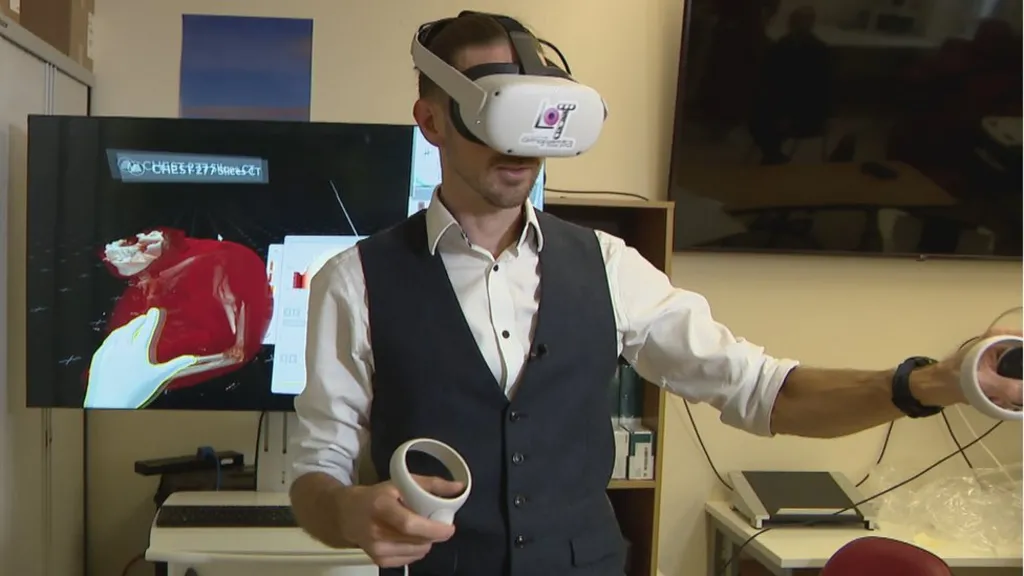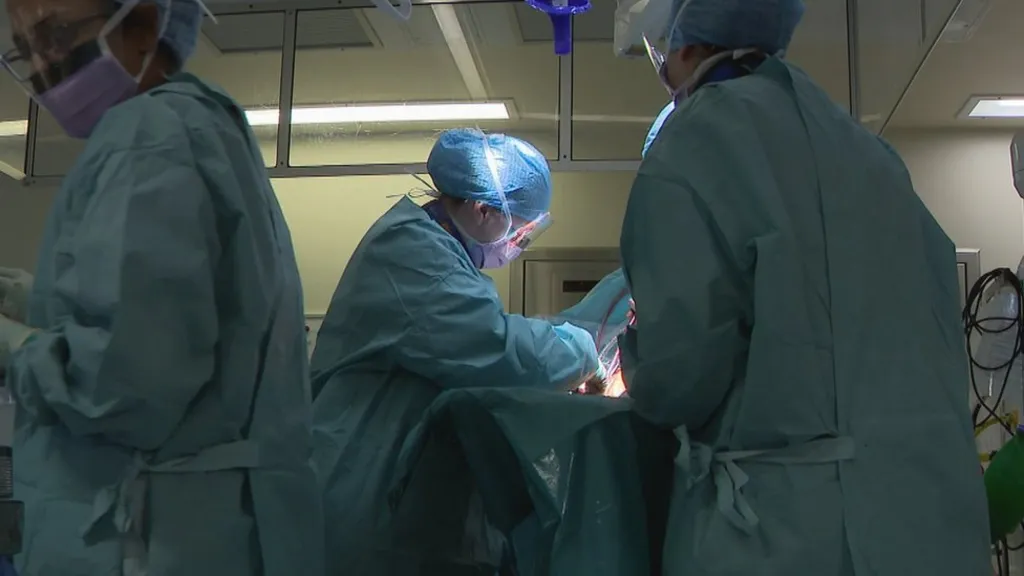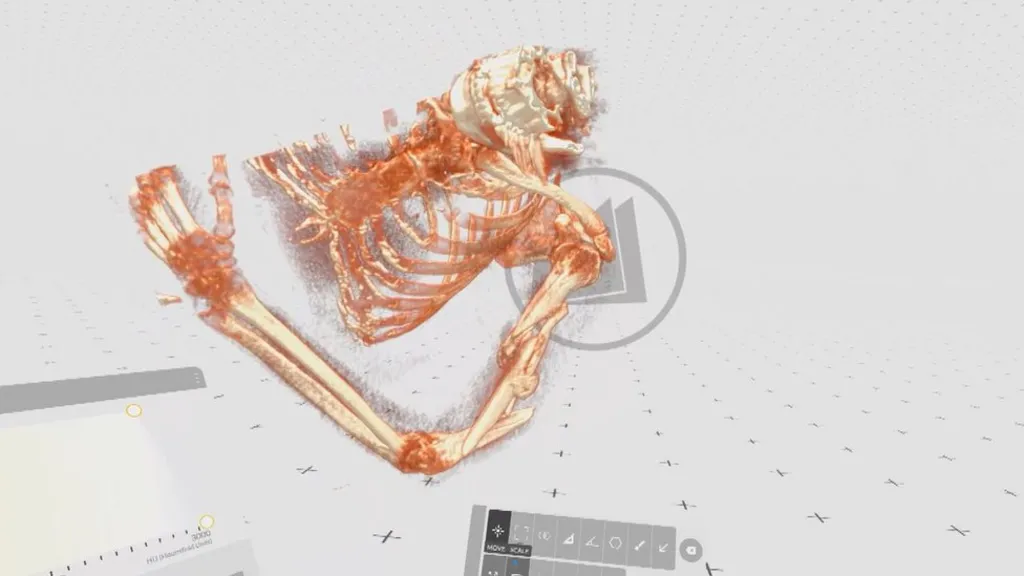Trauma surgeon David Howie, based in Scotland, has innovatively integrated virtual reality (VR) technology into the field of orthopedic surgery, revolutionizing the way complex bone repairs are approached. Inspired by a gaming experience with his daughter, Howie saw the potential of VR to enhance surgical preparation, leading to the development of a system that allows surgeons to rehearse intricate procedures outside the operating theatre.
Read more on BBC News >
This pioneering approach, now adopted by surgeons at NHS Lanarkshire, is viewed as a game-changer for orthopedic surgery. The low-cost VR system is praised for its potential to aid surgeons across the field in planning and executing complicated operations with unprecedented precision.
Transforming Preoperative Planning
The VR system developed uses software from Medicalholodeck, adapting existing technology to create a realistic environment where doctors can visualize patient scans in three dimensions. This immersive experience provides a comprehensive understanding of fractures, enabling surgeons to plan their procedures with a level of detail previously unattainable.
A Eureka Moment with VR
Howie's journey into the integration of VR in surgery began with a simple VR gaming session. The immersive experience led him to ponder the possibilities of applying VR technology to view and interact with CT scans for preoperative planning. After researching existing software solutions, Howie and his team chose a platform that allowed for a detailed examination of complex injuries through high-tech 3D images.

The Impact on Complex Surgeries
For cases involving intricate bone fractures, the VR system has proven to be particularly beneficial. "In really complicated ones where there are six or seven different pieces, it is a game changer," says Howie. The technology allows surgeons to "get their head around the mess" before making the first incision, significantly enhancing the planning phase of surgery.
Surgeon Elizabeth Crighton, who has utilized the system for complex surgeries, echoes Howie's sentiments. The ability to visualize and practice on the exact fracture in VR has been invaluable in planning and executing successful surgeries.

Cost-Effective Innovation
The VR system developed by NHS Lanarkshire stands out not only for its innovative approach but also for its cost-effectiveness. The pilot project incurred costs lower than those for the materials required for just two hip operations, making it an economically viable solution for enhancing surgical outcomes.
The Impact on Complex Surgeries
The success of this VR system in preoperative planning for orthopedic surgery has paved the way for potential applications in other surgical fields. NHS Lanarkshire is currently collecting data to assess the system's impact on clinical outcomes and patient experiences. If proven effective, this VR approach could be expanded to other surgeries, offering a cost-effective solution to improve surgical precision and patient care.
Lyle Boylan, NHS Lanarkshire's E-health transition manager, highlights the system's potential to reduce clinical risk and enhance patient understanding of surgical procedures. By providing a clearer picture of what to expect during surgery, the VR system can improve patient experiences and potentially speed up recovery times.

A New Dimension in Surgery
news.virtualrealitygamechanger.paragraph6texta
For more information, contact info@medicalholodeck.com September 2023